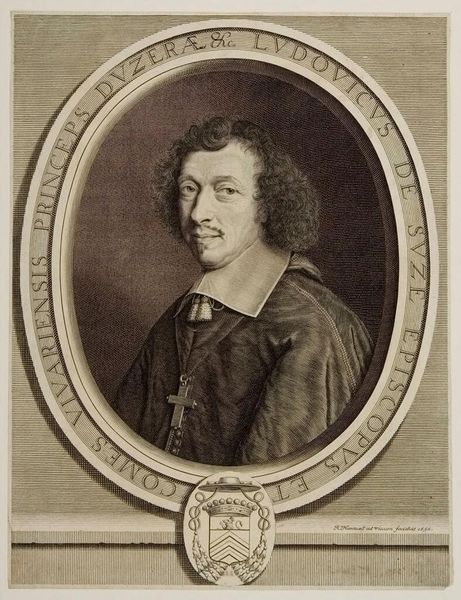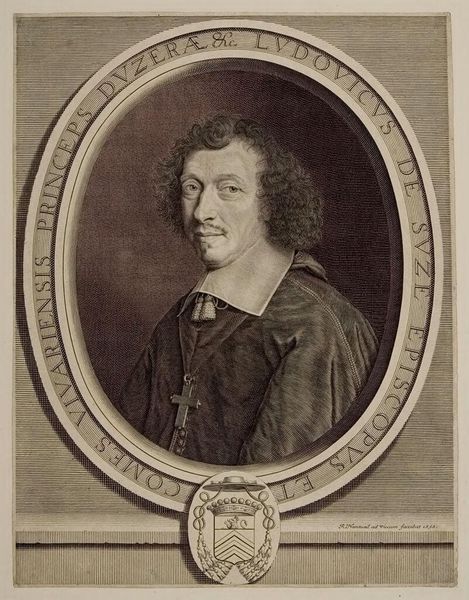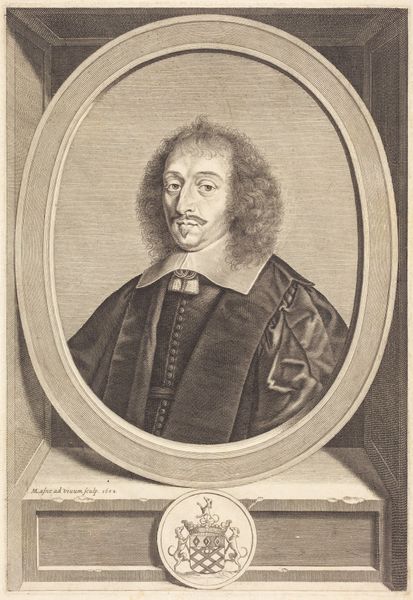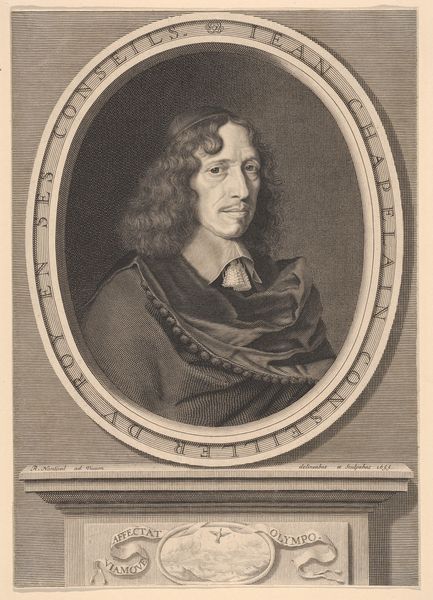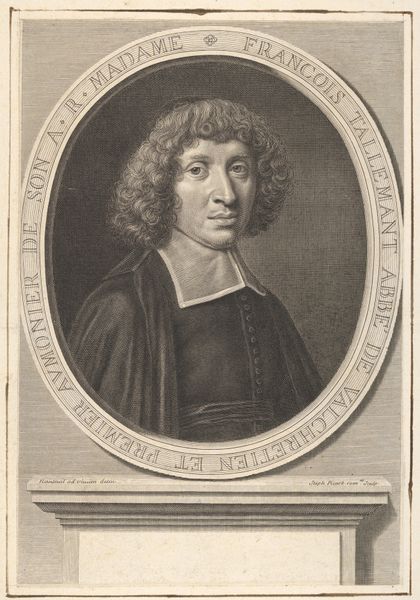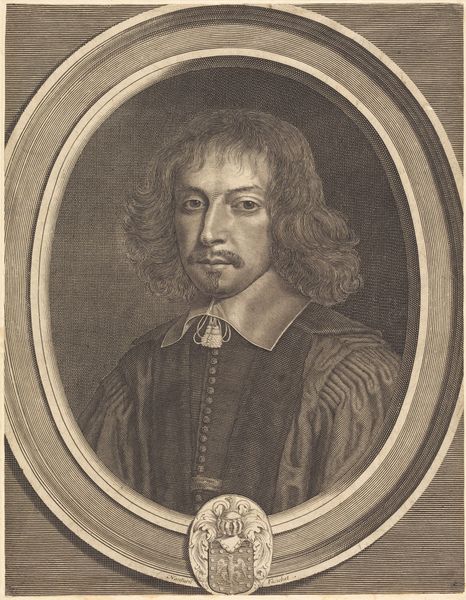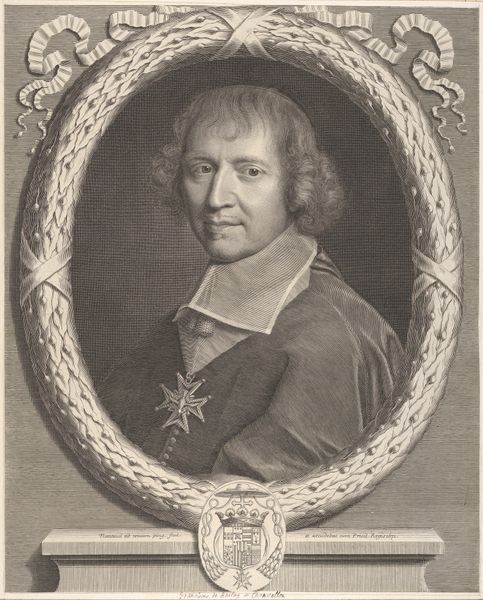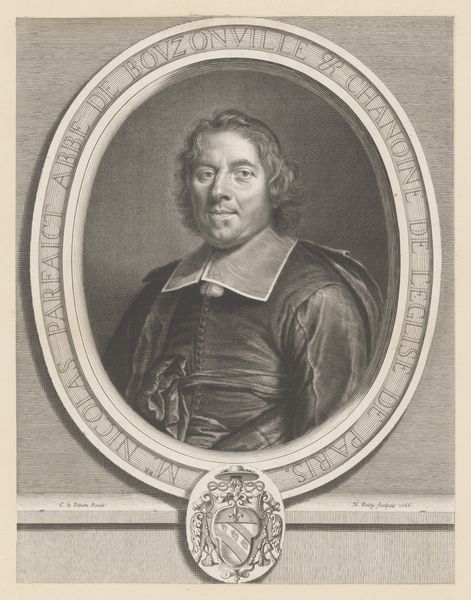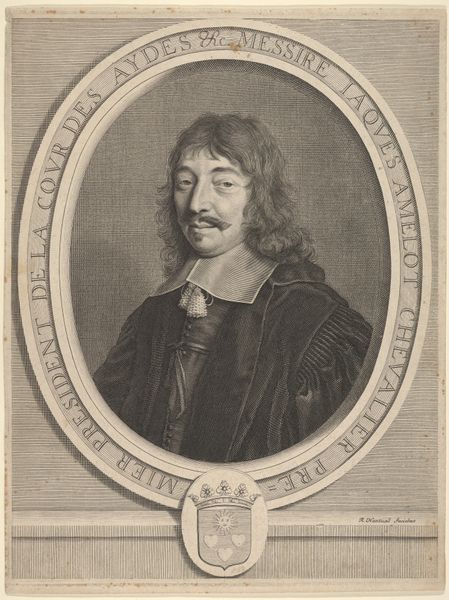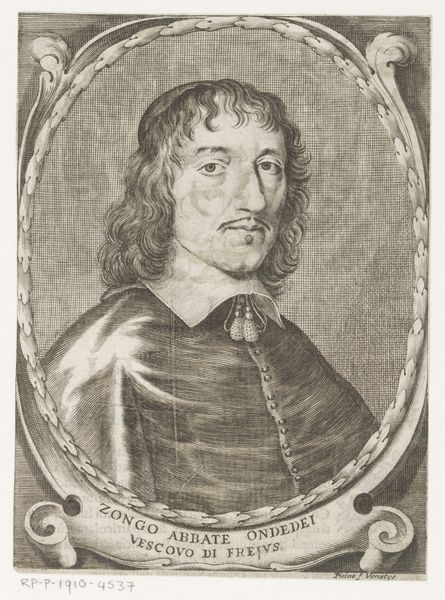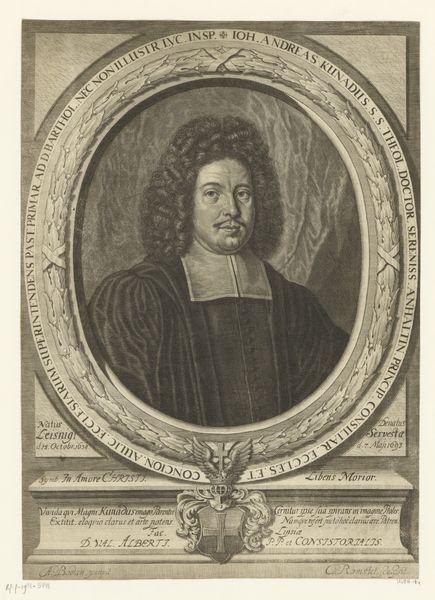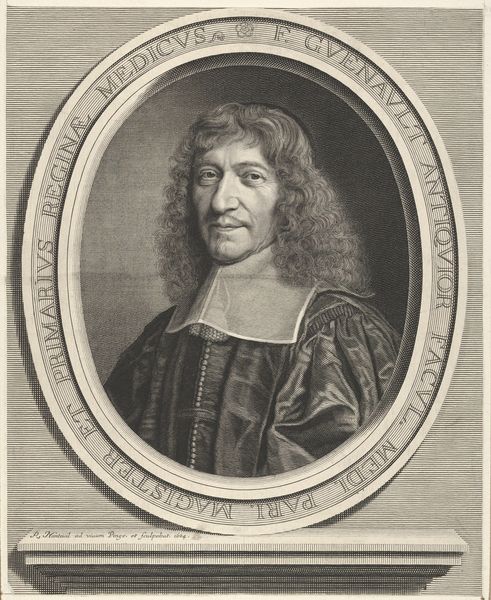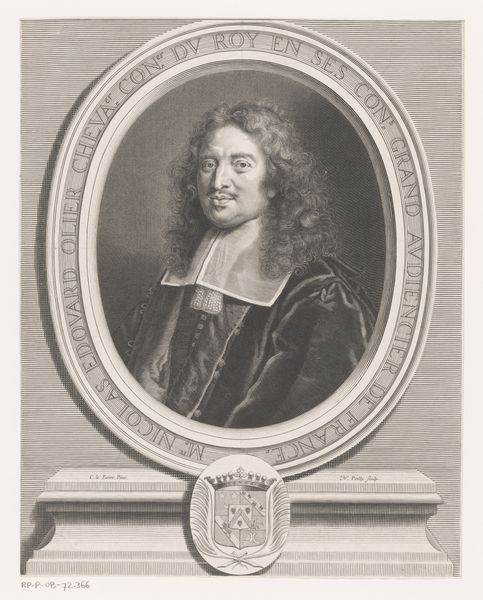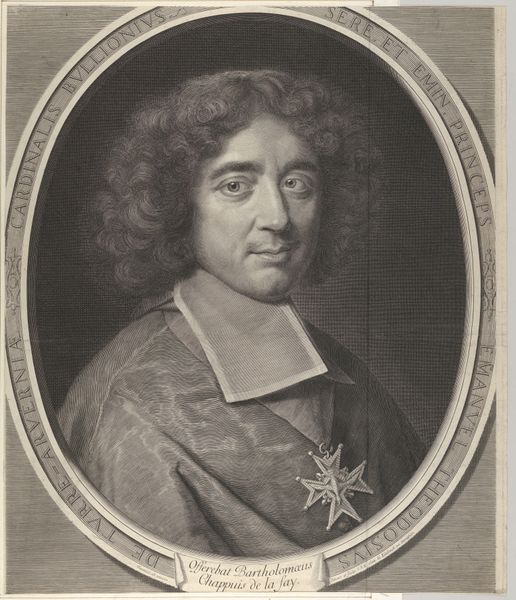
drawing, print, engraving
#
portrait
#
drawing
#
baroque
# print
#
history-painting
#
engraving
Dimensions: Sheet: 12 5/8 × 9 5/8 in. (32 × 24.4 cm) trimmed
Copyright: Public Domain
Curator: This engraving, "Louis-François de La Baume de Suze" by Robert Nanteuil from 1656, showcases a dignified portrait of a religious figure. I’m particularly struck by the fineness of the lines – the artist really achieved great detail with this method. What strikes you most? Editor: It’s interesting to see such a detailed portrait rendered as a print. What do you think about Nanteuil’s process in creating this work? Curator: Absolutely. Considering the means of production here, it's crucial to analyze the engraver’s labor. How long might it have taken Nanteuil to achieve such delicate details? Also, what sort of tools were available at the time? This helps us to understand its value within its social context. Think of the labor involved in printmaking as a trade – do you consider this a fine art, or skilled craft? Editor: It’s a thought-provoking distinction. Thinking about art as craft… how does the context of this being a printed portrait impact our perception? Curator: Exactly. Prints often served as a means of wider distribution, reaching audiences beyond the elite. Think about how engravings facilitated the spread of images and information in the 17th century. It allows art to reach a broader market beyond the confines of paintings commissioned only by the upper class. Do you think this democratization changes how we value these types of artworks today? Editor: It makes me reconsider the status associated with portraiture. Instead of just representing power, prints also become tools for social mobility and cultural exchange. This adds another layer of meaning to the artwork. Curator: Precisely. By looking at the materials and production methods, we see how the artist both participated in and potentially challenged traditional hierarchies of art. Editor: I’ll never look at an engraving the same way! Thank you for opening my eyes to these nuances. Curator: It was a pleasure! It highlights how analyzing materials reveals hidden social and historical dimensions.
Comments
No comments
Be the first to comment and join the conversation on the ultimate creative platform.
